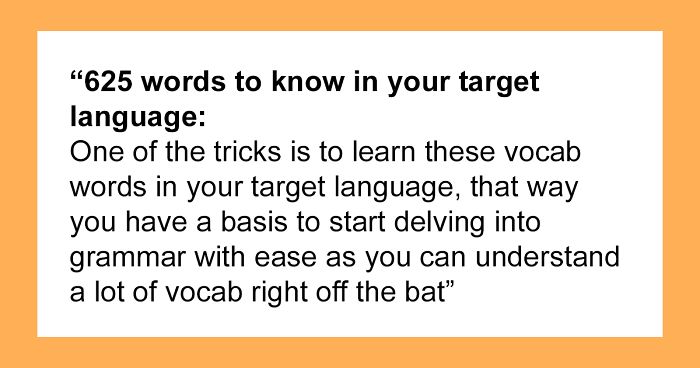
“625 Words To Know In Your Target Language”: Clever Language Learning Hack Goes Viral
InterviewSome of us have fantasized about flying off to an exotic new country and learning the local language and customs in just a few short weeks. However, learning a new language is tougher and less romantic than we’d like. But it doesn’t have to be. A Tumblr post by Asian-lang-stubyblr went viral after summarizing a technique by Fluent Forever than can help you on your way to polyglotism.
The idea is simple: learning just 625 words in the language that you’ve currently got a crush on will give you a solid linguistic foundation. You’ll understand a lot of the things that people talk about and you’ll then have enough confidence to further delve into vocab and grammar. These words are very common and you don’t have to spend your time learning words you’ll rarely (if ever) use, like ‘apricot.’ What’s more, the words are all visual, so you can learn them with the help of images, instead of relying on translations. This way, you learn faster and you create a solid foundation for learning more abstract concepts and grammar later on.
While 625 words might sound like a lot, when you look through the list, it looks completely manageable and like a lot of fun. Let us know if you’ve ever tried a similar technique before, dear Pandas! Scroll down for Bored Panda’s interview with Gabriel Wyner, founder of Fluent Forever, as he goes into detail about the word list and gives us some additional advice about learning new languages.
More info: Facebook | Instagram | Twitter | YouTube | FluentForever.com
Learning a new language can be tough, but there’s a hack out there that can give you a solid foundation
Image credits: NBC
Image credits: asian-lang-stubyblr
“It’s so critical that people avoid memorizing translations”
Gabe told Bored Panda that the list used to be 400 words long and was entirely based on the General Service List for English. “I took that list and removed everything that wasn’t visual, along with everything that was particularly English centric. After some time, I found that 400 words were missing a few key concepts,” he said. That’s when he added extra words form a more modern word frequency dictionary.
He added that he and his team have made a few modifications to the list when translating it over to new languages for their app. “There were occasional words that really wouldn’t fit for a particular language, but for the most part the list has remained intact and unmodified.”
Gabe also offered some advice for those of us who are all hyped up about learning a new language. “It’s so critical that people avoid memorizing translations. It’s a really easy trap to fall into, and it just ruins effectiveness. I think it’s the number one problem in language learning out there. I gave a TEDx talk about this that goes through the research on why that went viral a few years back, and I think it’s a good summary of the issue!”
Learning words by category is harder than learning them randomly or in related groups
According to the founder of Fluent Forever, the very first step that you should take when learning a new language is getting the pronunciation of sounds down just right. That way, the sounds, well, sound less foreign which means that you’ll have an easier time remembering words when you start working on vocab.
The Tumblr post shows Gabe’s list in a bunch of categories (clothing, colors, etc.), which makes the list easy to follow but harder to learn. Gabe cautions that learning words by category (clothing, then colors, then jobs) is about twice as hard as learning words randomly (apple, dog, red) or in related groups (apple, sweet, to eat). So he has some alternative options for ordering the list. You can check it out on his website.
Now, these are simple words like dog, bus, etc., so actually memorizing them is easy-peasy because you can use pictures and flashcards. If you’re new to learning languages, apps like Fluent Forever, Duolingo, and Anki can really help out. The latter is fantastic for using flashcards (and not just for languages, too, so keep it in mind for your exam prep).
Wyner also suggests that you group the words up into stories. And if those stories are funny, then you’ll remember them that much better. It’s been proven that we remember humorous things better.
Gabe became fluent in German in 14 weeks, learned French in 5 months, and Russian in 10 months. He also learned Spanish, Hungarian, and Japanese over the last few years. With results like that, he must be doing something right.
This isn't a hack, this is literally the first thing that every language learning program teaches
This is not very reliable, I think. Just useful for emergencies. There are languages like Japanese with different counting systems for different groups of objects. German has two words for hats, Turkish differentiates between older/younger brother/sister, maternal or paternal aunt/uncle. I'm sure there are many more examples like that, which will make this list less useful.
It is commonly said that you can get by with just 600 to 800 words in a new language. I am learning Spanish and most words have numerous variations based on their use and context so you need to learn a lot more. English to French you can often take out an English word and put in a French word and still get a sentence which means pretty much the same. English to Spanish is totally different with words missing, etc.
This isn't a hack, this is literally the first thing that every language learning program teaches
This is not very reliable, I think. Just useful for emergencies. There are languages like Japanese with different counting systems for different groups of objects. German has two words for hats, Turkish differentiates between older/younger brother/sister, maternal or paternal aunt/uncle. I'm sure there are many more examples like that, which will make this list less useful.
It is commonly said that you can get by with just 600 to 800 words in a new language. I am learning Spanish and most words have numerous variations based on their use and context so you need to learn a lot more. English to French you can often take out an English word and put in a French word and still get a sentence which means pretty much the same. English to Spanish is totally different with words missing, etc.

 Dark Mode
Dark Mode 

 No fees, cancel anytime
No fees, cancel anytime 






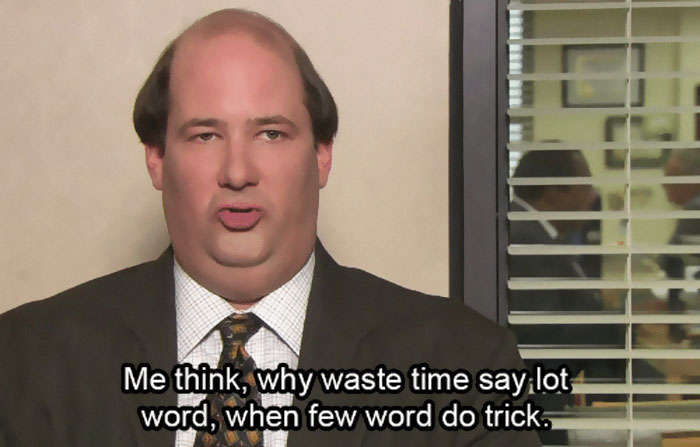
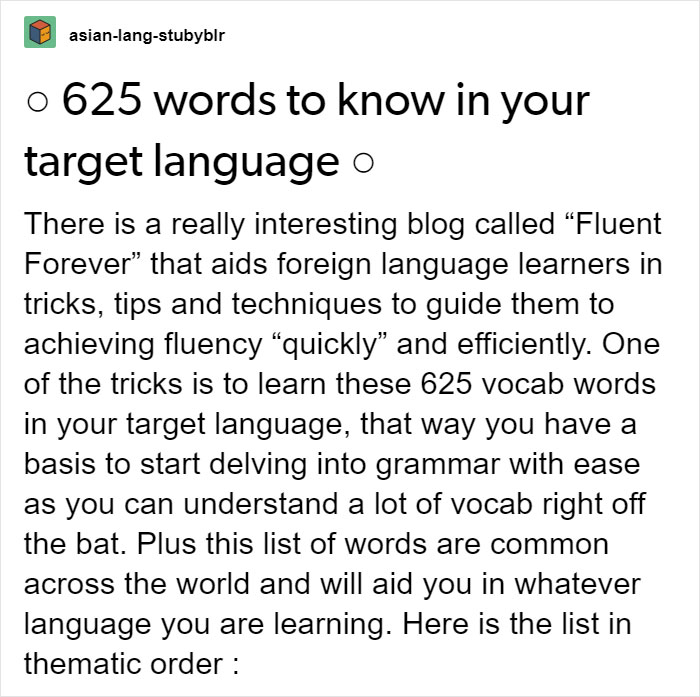


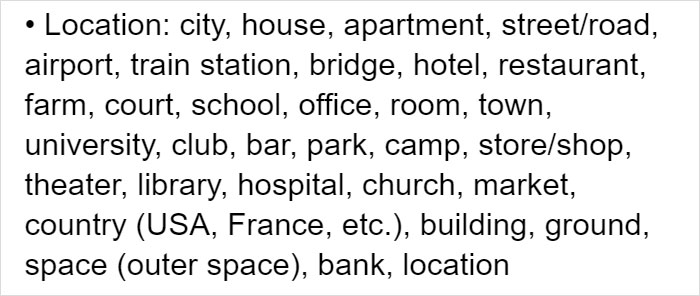


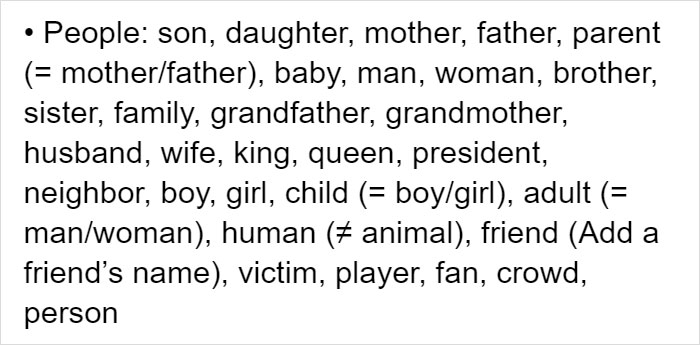

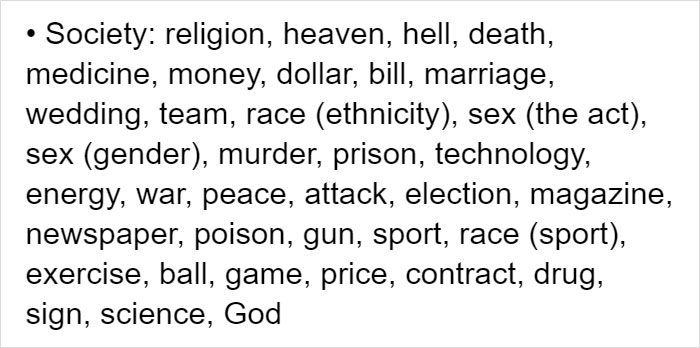



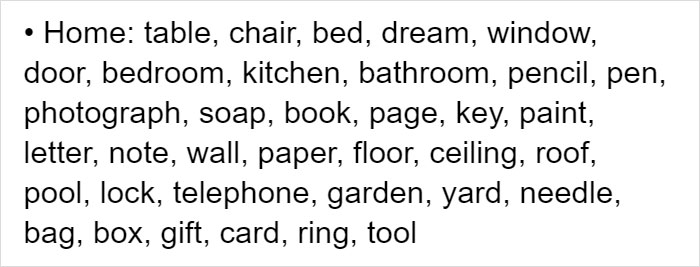








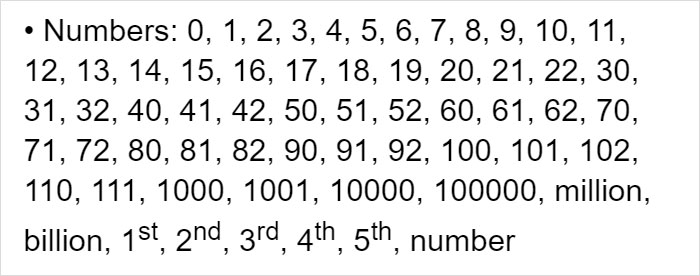



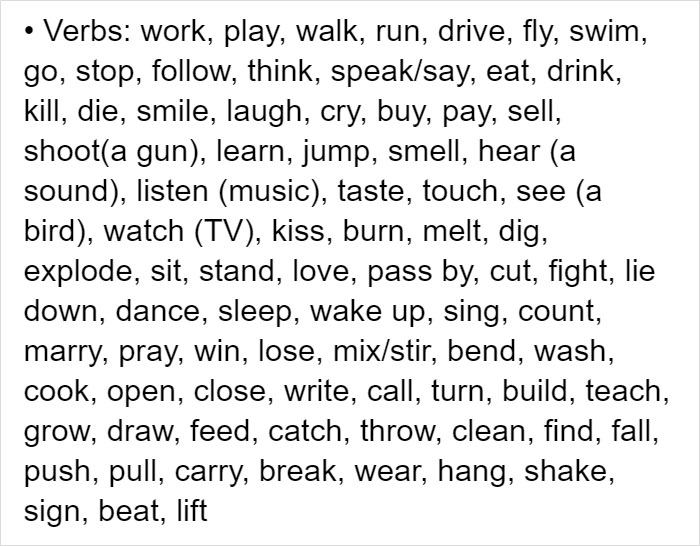
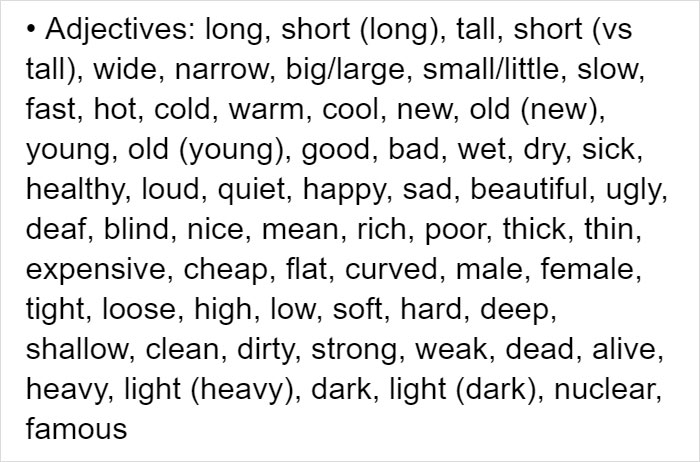













































256
49